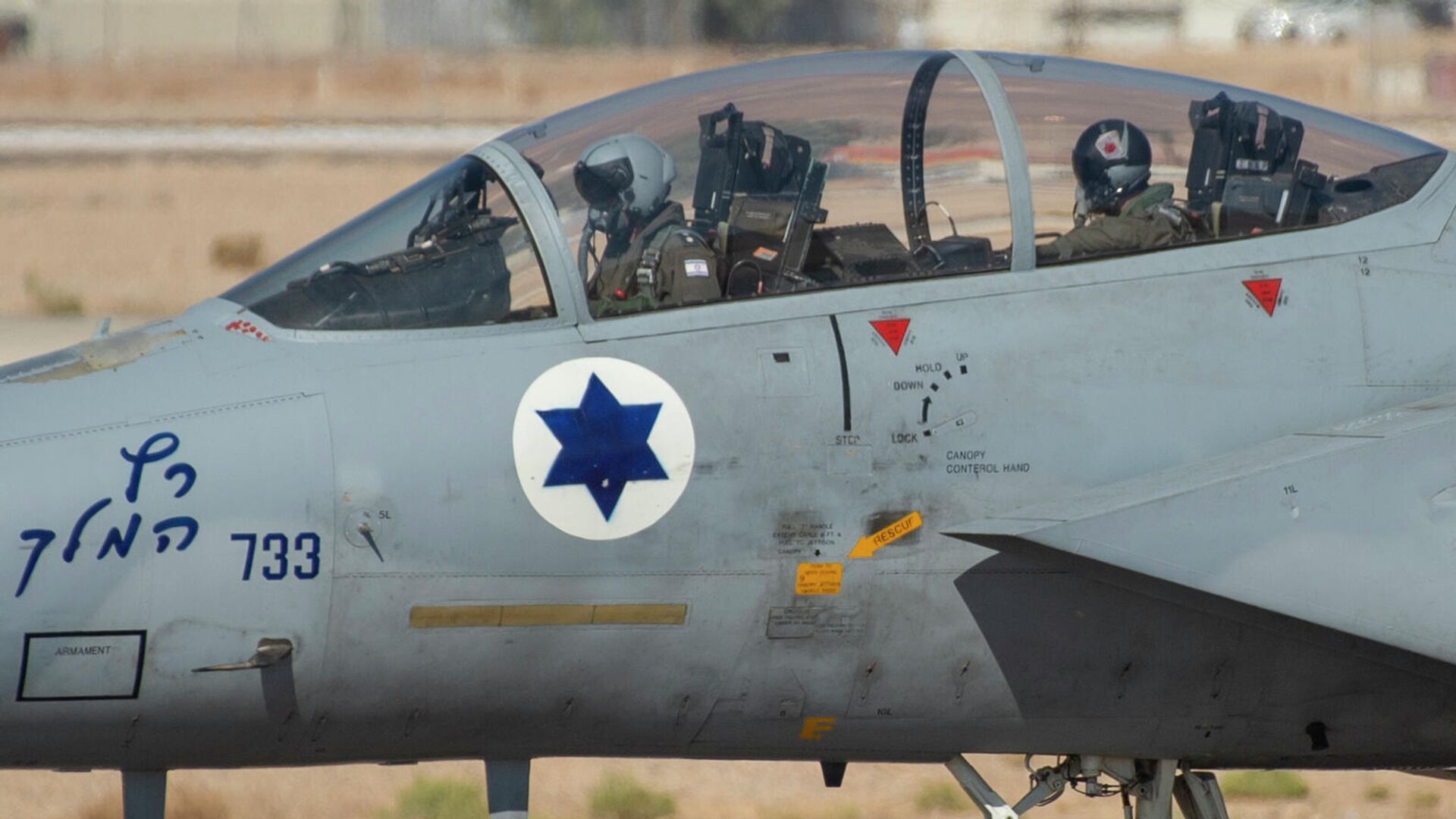Israel Could Attack Iran’s Nuclear Programme Tomorrow If Needed, Says Air Force Future Head
17:37 GMT 22.12.2021 (Updated: 17:25 GMT 15.01.2023)
Subscribe
The statement comes as US national security adviser, Jake Sullivan, is visiting Israel for detailed talks with Prime Minister Naftali Bennett on Iran’s nuclear programme. Israel has claimed Tehran is trying to develop nuclear weapons whereas Iran insists it's nuclear programme is intended only for peaceful purposes.
Israel has the wherewithal to attack Iran’s nuclear programme successfully tomorrow if needed, major-general Tomer Bar, incoming commander of the country’s Air Force, has said. Speaking to Yediot Aharonot, Bar, who commands the Force Design Directorate, suggested Israeli Defence Forces (IDF) will attack Tehran’s nuclear facilities should talks between the Islamic Republic and the P5+1 group of negotiators fail.
"I have to assume it will happen in my life, and my shoulders are already getting ready for the burden of the responsibility. There is no way that we will operate there, 1,000kilometers from here, and I will return home without being able to say 'I completed the mission'", he told the newspaper.
The major-general has dismissed reports that a lack of funding was hindering IDF’s missions. "We equipped ourselves with F-35s. We procured thousands of Iron Dome interceptors for multi-layer defense", Bar said.
The commander also touched on last week’s report from The New York Times, which said that the United States had rejected Israel’s request to speed up supplies of Boeing’s KC-46 Pegasus refuelling aircraft. The jets were to be delivered under the $2.4 billion deal the United States and Israel signed last year. According to the newspaper, Israel considers the aircraft is "critical to striking Iran’s nuclear facilities". KC-46’s characteristics allow the plane to refuel three jets at once in four minutes.
Bar said that he doesn’t know why the White House rejected Israel’s request, but stressed that he has not "yet exhausted the possibility of getting at least two [jets] in advance".
His interview comes a week after media reports said that Israel’s Prime Minister Naftali Bennett had allegedly stated that Israel is preparing for a military option to prevent Iran from obtaining a nuclear weapon.
Israel and Iran have had a tense relationship since the 1979 Islamic Revolution in Tehran. At the time, the supreme leader Ayatollah Khomeini adopted a sharp anti-Israeli stance and cut off all ties with its neighbour. Over the years, both sides have engaged in tit-for-tat incursions, but have avoided a direct military conflict.
Relations between the two sides have further deteriorated because of Iran's nuclear programme, which Israel considers poses a threat to its existence. In 2015, Iran, Britain, China, France, Germany, Russia, and the United States signed the Joint Comprehensive Plan of Action (JCPOA), commonly known as the Iran nuclear deal. Under the agreement, the Islamic Republic curbed its nuclear programme in exchange for the lifting of economic sanctions and an arms embargo.
The commander also touched on last week’s report from The New York Times, which said that the United States had rejected Israel’s request to speed up supplies of Boeing’s KC-46 Pegasus refuelling aircraft. The jets were to be delivered under the $2.4 billion deal the United States and Israel signed last year. According to the newspaper, Israel considers the aircraft is "critical to striking Iran’s nuclear facilities". KC-46’s characteristics allow the plane to refuel three jets at once in four minutes.
Bar said that he doesn’t know why the White House rejected Israel’s request, but stressed that he has not "yet exhausted the possibility of getting at least two [jets] in advance".
His interview comes a week after media reports said that Israel’s Prime Minister Naftali Bennett had allegedly stated that Israel is preparing for a military option to prevent Iran from obtaining a nuclear weapon.
Israel and Iran have had a tense relationship since the 1979 Islamic Revolution in Tehran. At the time, the supreme leader Ayatollah Khomeini adopted a sharp anti-Israeli stance and cut off all ties with its neighbour. Over the years, both sides have engaged in tit-for-tat incursions, but have avoided a direct military conflict.
Relations between the two sides have further deteriorated because of Iran's nuclear programme, which Israel considers poses a threat to its existence. In 2015, Iran, Britain, China, France, Germany, Russia, and the United States signed the Joint Comprehensive Plan of Action (JCPOA), commonly known as the Iran nuclear deal. Under the agreement, the Islamic Republic curbed its nuclear programme in exchange for the lifting of economic sanctions and an arms embargo.
Israel strongly opposed the JCPOA, with the country's former Prime Minister Benjamin Netanyahu arguing that the deal "doesn't block Iran's path" to [developing a nuclear] bomb, but instead paves Iran's path to it.
Donald Trump, who was president of the United States in 2017, harshly criticised the deal too and in 2018 withdrew the nation from the accord despite warnings and criticism from other signatories. Upon taking office, new US President Joe Biden voiced his intention to revive the JCPOA. However, the personal desires of Democrat Joe Biden, have been somewhat hampered by the White House's pushing for more restrictions to be included in the agreement.
Israel has voiced opposition to attempts to restore the deal. Iran has insisted that its nuclear programme is intended only for peaceful purposes, citing the 2009 ruling of Iran’s supreme leader Ayatollah Ali Khamenei, who condemned the use and development of weapons of mass destruction describing them as a violation of Islam’s moral structures.
Israel has voiced opposition to attempts to restore the deal. Iran has insisted that its nuclear programme is intended only for peaceful purposes, citing the 2009 ruling of Iran’s supreme leader Ayatollah Ali Khamenei, who condemned the use and development of weapons of mass destruction describing them as a violation of Islam’s moral structures.
Earlier this week, US national security advise Jake Sullivan arrived in Israel to hold talks with Israeli Prime Minister Naftali Bennett on the Iran nuclear deal.



